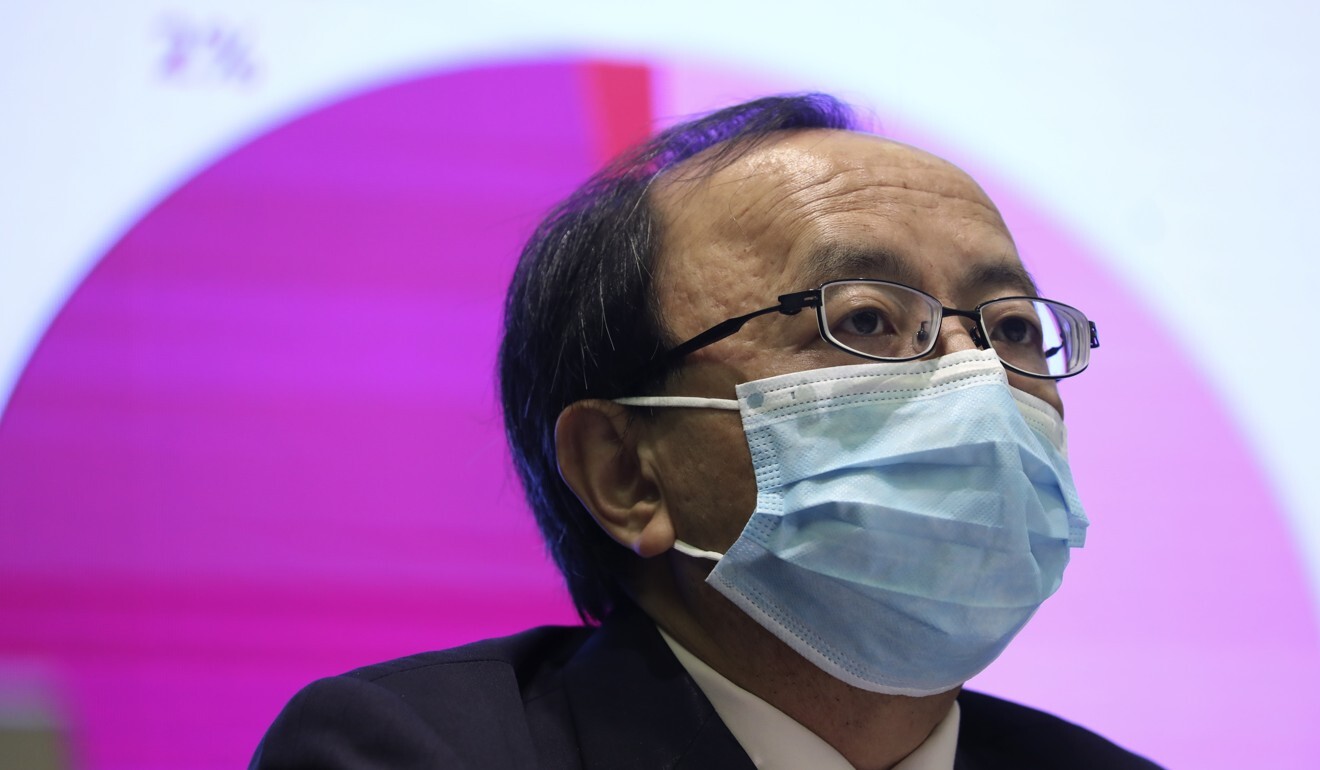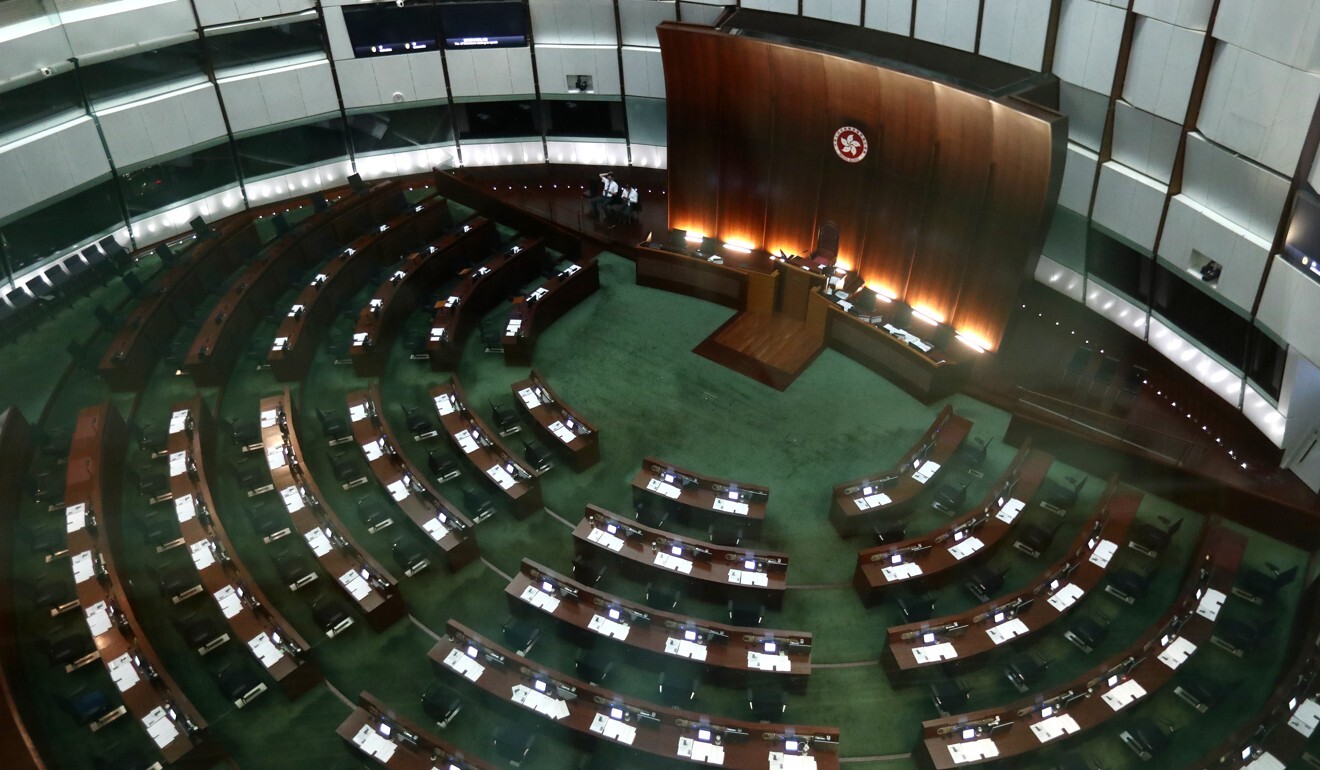
Beijing’s decision to extend Legco term shows Hong Kong affairs are no longer dealt with by common law principles, legal scholar warns
- HKU law scholar Eric Cheung says move shows Hong Kong is not following the Basic Law any more
- But lawmaker Priscilla Leung says mainland China did not interpret the Basic Law, and struck a balance between the constitutional system and reality
Beijing’s decision to extend the term of Hong Kong’s legislature by at least one year showed that the city’s affairs were no longer dealt with by common law principles and its mini-constitution, but by a legal system with Chinese characteristics, a legal scholar has warned.
Eric Cheung Tat-ming, a principal lecturer at the University of Hong Kong (HKU), also said it would be difficult to lodge a legal challenge against the resolution passed by the National People’s Congress Standing Committee (NPCSC), because China’s top legislative body had the right to interpret the Basic Law.
“[The decision] highlights that Hong Kong is not following our common law system or … the Basic Law any more,” he said on a radio programme.

“Hong Kong is now implementing [Beijing’s] comprehensive jurisdiction mentioned in the State Council’s white paper in 2014. Simply speaking, we are using a legal system with Chinese characteristics to handle Hong Kong problems.”
The white paper came 10 days before Occupy Central activists, calling for greater democracy, held an unofficial referendum on the options for the 2017 election of the chief executive, which sparked a fierce political debate at the time.
The NPCSC on Tuesday made a seemingly straightforward decision to allow serving lawmakers to continue their duties for at least a year.
Beijing extends Hong Kong’s Legislative Council term by ‘at least one year’
But the resolution did not provide any legal rationale for extending the current Legco term, which expires on September 30, nor did it explain how the move was consistent with Article 69 of the Basic Law, which states that the tenure of office for Legco shall be four years.
Cheung said while the decision might not fit well with the reasoning of the city’s legal system, it made sense in the Chinese one.
Beijing’s foreign ministry spokesman Zhao Lijian on Wednesday said the NPCSC’s decision provided a solid legal foundation for Legco to continue to discharge its duties.
Zhao also warned that Hong Kong’s Legco elections were purely China’s internal affairs that allowed no foreign interference.
It is difficult not to say that the [local government] has given up on tackling a difficult problem under the Basic Law in favour of a predictable ‘quick fix’ offered by the [NPCSC]
Amid speculation over whether lawmakers would need to take their oath again in October, a Hong Kong government spokesman said that would not be necessary. He also said the government had no plan for any by-elections to fill several seats previously vacated as a result of legal challenges or the disqualification of lawmakers.
Hong Kong chief executive Carrie Lam Cheng Yuet-ngor had a series of meetings with pro establishment legislators on Wednesday to discuss both the pandemic and the NPCSC decision.
Pro-Beijing lawmaker Starry Lee Wai-king said she asked Lam to request that lawmakers get back to work as soon as possible, and to facilitate more pandemic relief measures.

He also said that since Beijing’s June 30 imposition of the national security law on Hong Kong, “there have been immediate an immediate on restoring social order … but there is still a lot of work to be done.”
Hong Kong Bar Association chairman Philip Dykes, meanwhile, was among those who argued the NPCSC’s decision was not in line with the common law approach to construing legislation.
“[The common law] approach would be to say that the meaning of ‘four years’ is plain and obvious,” he said.
“It is difficult not to say that the [local government] has given up on tackling a difficult problem under the Basic Law in favour of a predictable ‘quick fix’ offered by the [NPCSC] … It will not be enough to say that the decision is consistent with Article 69 of the Basic Law because the [NPCSC] says it is so.”
But Ip Kwok-him, a local deputy to the NPC, said that the mainland constitution granted it the right to make a legal decision based on the city’s actual situation to handle a condition that had not been considered when the Basic Law was set up decades ago.
This is not interpreting the Basic Law … It’s one-off. The extension for a year is due to the pandemic
He cited the impact of the Covid-19 pandemic as an example.
Under Article 31 of the Chinese constitution, the state may establish special administrative regions when necessary, and the systems to be instituted in special administrative regions “shall be prescribed by law enacted by the National People’s Congress in light of specific conditions”.
Under Article 62 (13) of the Chinese constitution, the NPC has the power “to decide on the establishment of special administrative regions and the systems to be instituted there”.
Pro-Beijing lawmaker Priscilla Leung Mei-fun, a member of the Basic Law Committee, also said Beijing’s decision had struck a balance between the constitutional system and reality, calling it the simplest and most direct solution.

“This is not interpreting the Basic Law. If it’s interpreting the law, it will clarify the wordings in Basic Law Article 69,” Leung said.
“It’s one-off. The extension for a year is due to the pandemic.”
The NPCSC has also steered clear of deciding the eventual fate of four opposition lawmakers recently banned from seeking re-election.
Beijing to allow city lawmakers barred from Legco polls in extended term, sources say
This effectively threw the ball back to the Hong Kong government, which later told local media that the current lawmakers would not need to take their oath again when they carry on serving their roles.
Cheung, the legal scholar, said Beijing had acted smartly on the fate of the four lawmakers.
“From the perspective of an ordinary person, it seems to be a skilful strategy … It didn’t go too extreme to set up a provisional legislature and appoint all pro-establishment lawmakers,” he said.
“Extending the term by a year could also make [the pan-democrats] unsure about whether to stay or not, and fight among each other.”
The opposition camp has been divided on whether they should continue to serve out their extended term, or to resign collectively as they believed that the NPCSC’s decision had contravened the Basic Law.
Additional reporting by Ng Kang-chung

